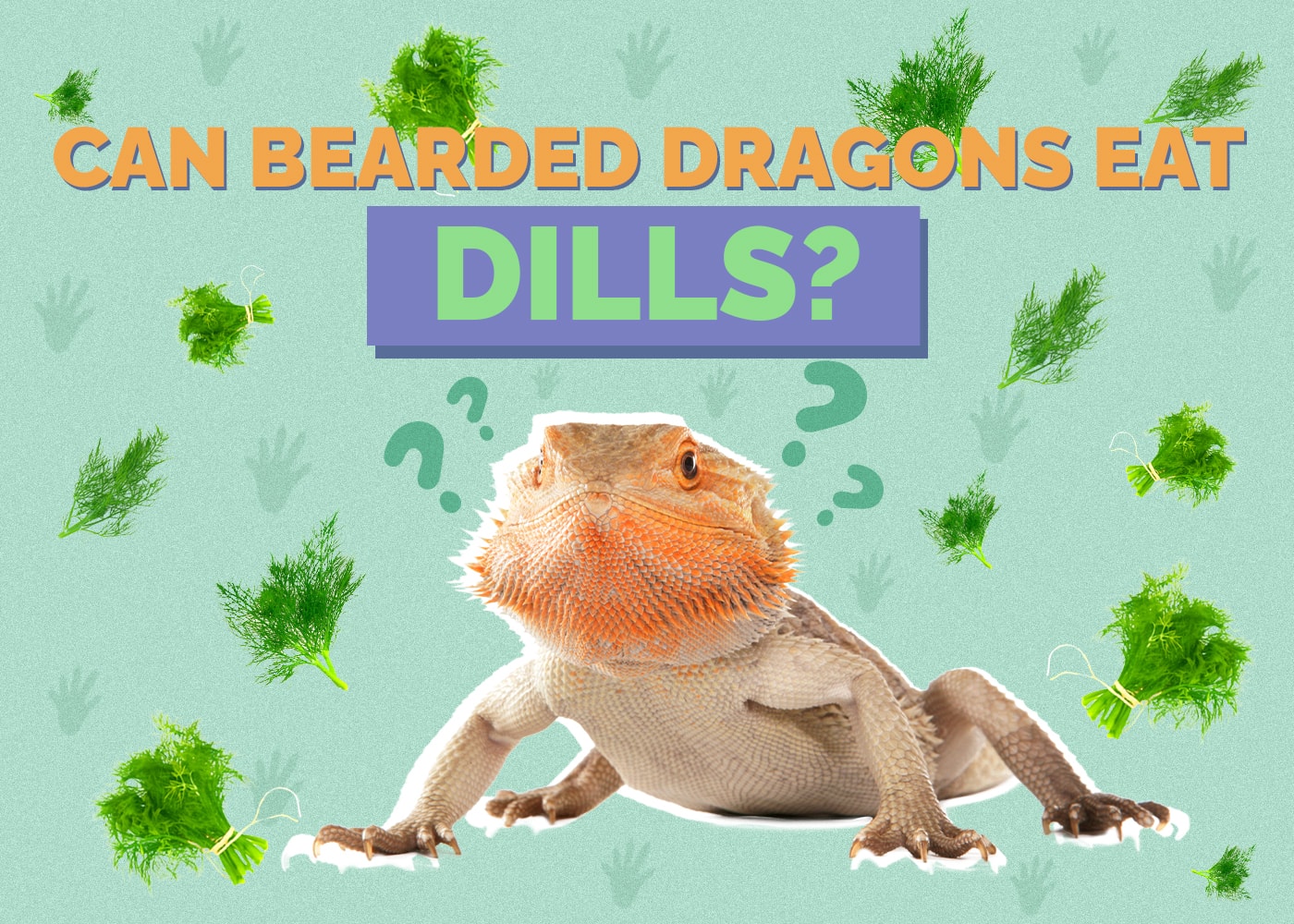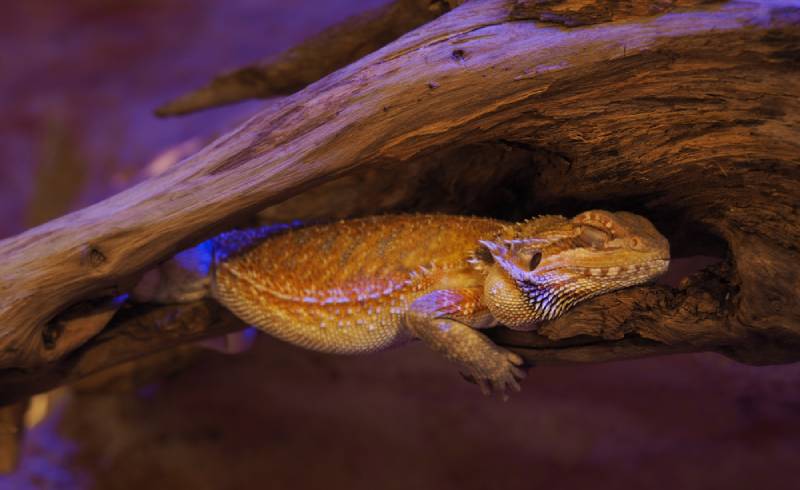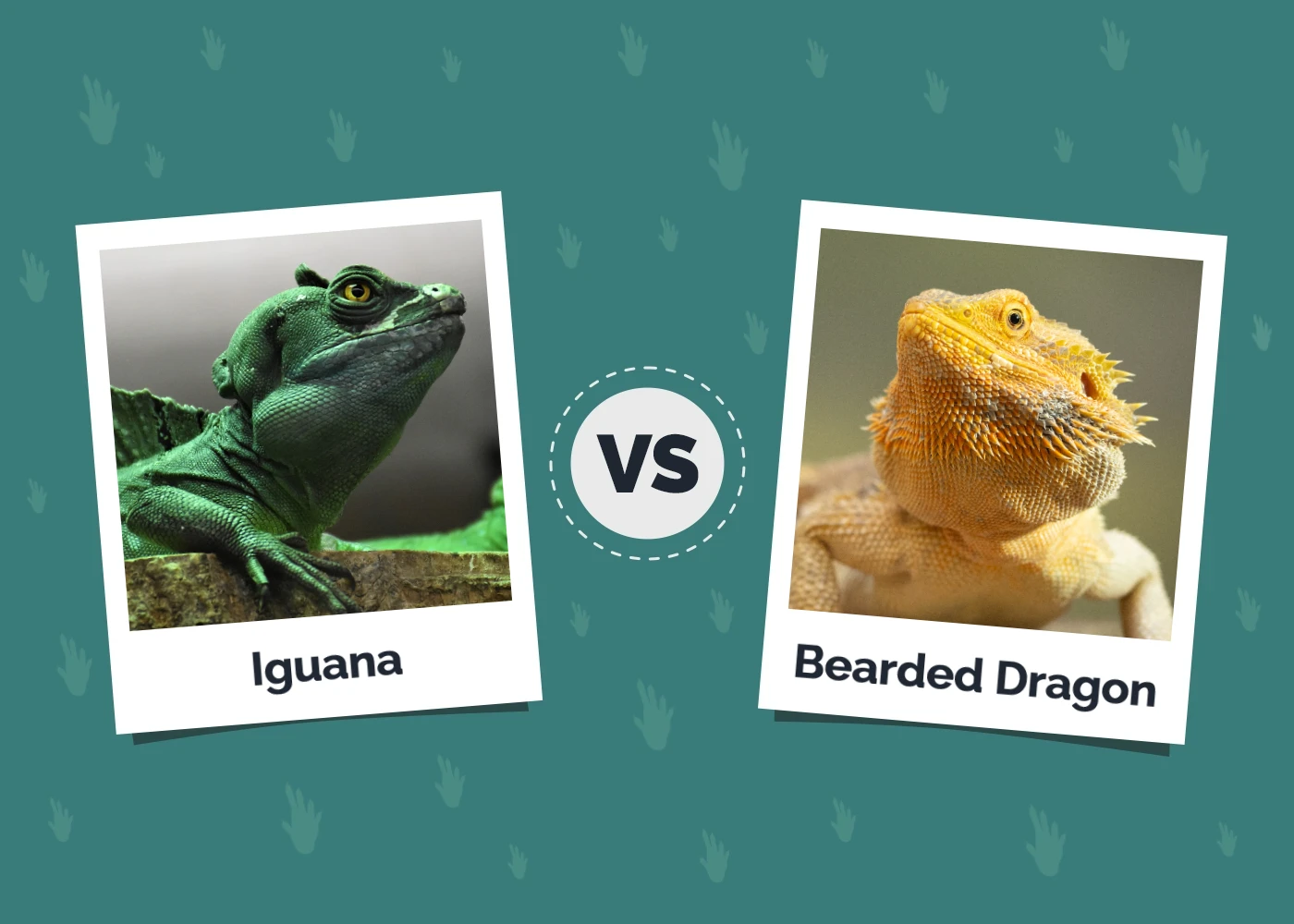Can Bearded Dragons Eat Broccoli? Vet-Approved Benefits & Risks

Updated on
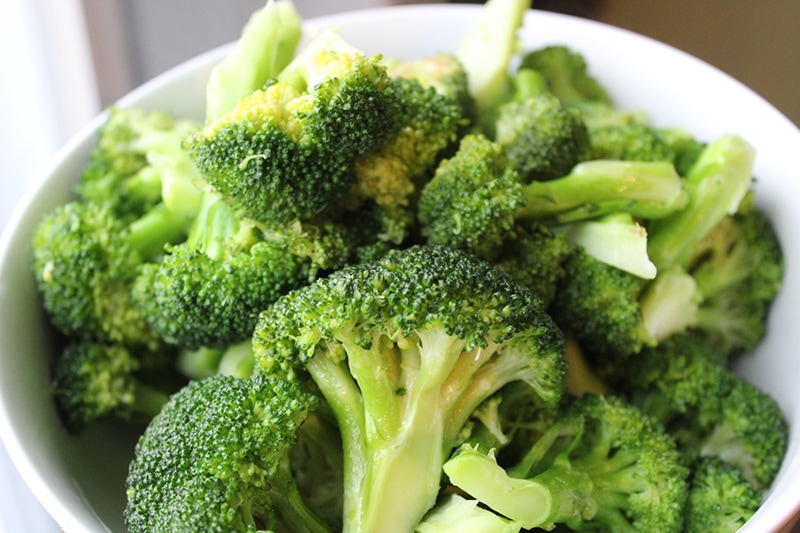
Click to Skip Ahead
If you’re a proud owner of a bearded dragon, you’re probably always on the lookout for new foods to keep your scaly friend healthy and happy. Among the various greens and veggies that you can experiment with, one vegetable that might catch your eye is broccoli. But can bearded dragons eat broccoli? The answer is a resounding yes! In fact, broccoli can be a nutritious addition to your bearded dragon’s diet provided that it is presented in moderation.
Let’s dive into the details and explore why broccoli is not only safe but also beneficial for these amazing reptiles and how to properly feed this delicious veggie!
Is Broccoli Healthy for Bearded Dragons?
Broccoli is packed with essential nutrients that can contribute to your bearded dragon’s overall health. It contains vitamins, minerals, and dietary fiber that can support their growth, development, and immune system.
However, it’s important to note that while broccoli is a great addition to their diet, it shouldn’t be the sole food source and should only be given in moderation. To stay in shape and maintain overall health, take note that variety is key to providing a well-balanced diet for your scaly companion!
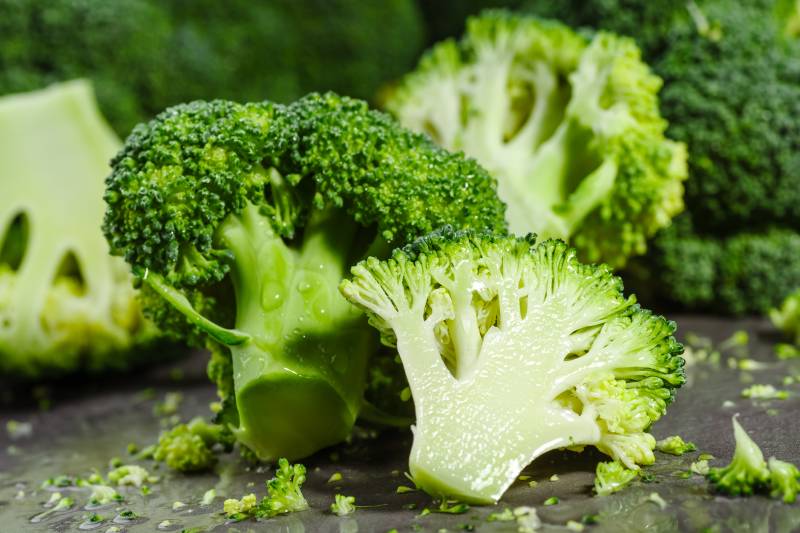
What Makes Broccoli Healthy for Bearded Dragons?
Broccoli is a nutritional powerhouse that offers several key nutrients for your bearded dragon. Broccoli contains high levels of vitamin A, vitamin C, and vitamin K, which are crucial for maintaining your dragon’s overall health. Vitamin A promotes good eyesight and healthy skin, while vitamin C supports their immune system. Vitamin K, on the other hand, is essential for proper blood clotting and bone health.
As omnivores, bearded dragons need a variety of minerals to maintain their bodily functions. Broccoli is a good source of calcium, phosphorus, and potassium. Calcium is particularly important for strong bones and egg development in female dragons. Maintaining a healthy intake of these minerals can help in preventing metabolic bone disease, which is common among reptiles that are calcium and phosphorus deficient.
Broccoli is also high in fiber which aids in proper digestion and helps prevent constipation in bearded dragons. Fiber also promotes a healthy gut, which is vital for their overall well-being.
Aside from the various nutritional contents of broccoli, this veggie is also a source of natural hydration. Broccoli has a high water content, which can help keep your bearded dragon hydrated. This is especially beneficial in warmer climates or during periods of increased activity.
Do Bearded Dragons Like Eating Broccoli?
Bearded dragons have individual preferences when it comes to food, but many of them enjoy the taste of broccoli. As omnivores, its unique texture and mild flavor make it an appealing addition to their diet.
As pets, you would probably already have an idea that your bearded dragon has their own individual personality. Keep in mind that not all bearded dragons will share the same enthusiasm for broccoli, so it’s important to observe your pet’s reaction and adjust accordingly.

Risks of Feeding Bearded Dragons Broccoli
While broccoli is generally safe for bearded dragons, there are a few risks to consider if presented and fed to your bearded dragon in excess.
Broccoli, like many leafy greens, contains oxalates which can bind to calcium and potentially lead to the formation of calcium oxalate stones. However, the calcium-to-oxalate ratio in broccoli is favorable, meaning the risk is relatively low compared to other foods.
Broccoli contains goitrogens, substances that can interfere with the thyroid function in high amounts. However, the goitrogen content in broccoli is relatively low, and as long as it’s fed in moderation, it should not pose a significant risk to your bearded dragon’s health.
In addition, broccoli is also high in fiber. While beneficial for gut health, excess fiber intake may cause digestive issues and discomfort for your bearded dragon. This reiterates the importance of maintaining a well-balanced diet and to keep their broccoli consumption at a favorable and moderate amount!
How to Properly Feed Bearded Dragons Broccoli
In order to maximize the benefits of including broccoli into your bearded dragon’s diet, proper preparation is necessary. Remember to use fresh and organic broccoli with vibrant green color and firm florets.
While organic broccoli is preferable to minimize the risk of pesticide exposure, remember to rinse and clean the broccoli before preparing for consumption to remove any dirt or residue.
Bearded dragons have small mouths, so it’s best to cut the broccoli into small, manageable pieces. This makes it easier for them to eat and reduces the risk of choking. Steaming or boiling the broccoli until it becomes tender will make it easier for your bearded dragon to digest. Be sure to not get carried away by using seasonings, butter, or oil, as these can be harmful to reptiles.
After cooking, let the broccoli cool down to room temperature before offering it to your dragon. Hot food can injure their mouths and digestive system.
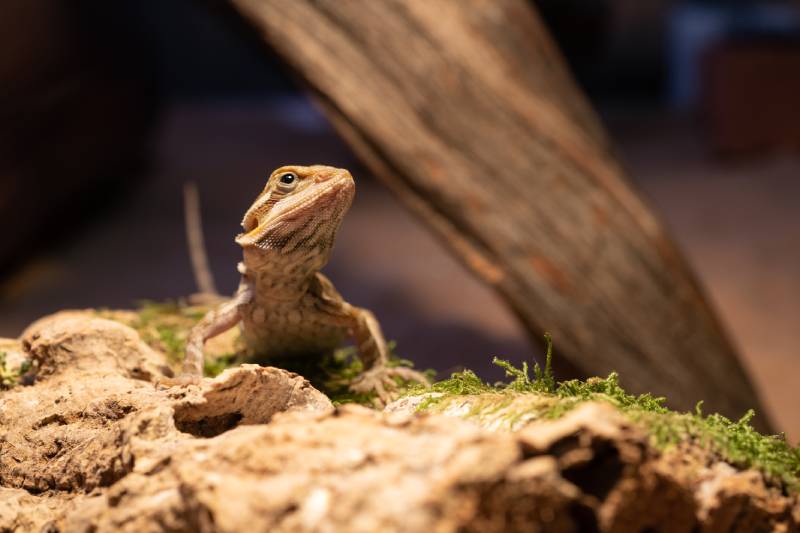
How Much Broccoli Should You Feed Your Bearded Dragon?
As continuously emphasized, when it comes to feeding broccoli to your bearded dragon, moderation is key! While broccoli is a tried and tested nutritious food, it should still be part of a diverse diet.
Remember that bearded dragons are omnivores. A good rule of thumb is to offer broccoli as a treat or supplement, rather than a staple. As a general guideline, around 10–20% of their overall diet can consist of vegetables, with the remaining portion being protein-rich foods, such as insects or commercial reptile food.
What Other Vegetables Can Bearded Dragons Eat?
Broccoli isn’t the only vegetable that can be included in your bearded dragon’s diet. There’s a wide range of vegetables that are safe and beneficial for them. Here are a few vegetables that you can explore and potentially incorporate into your bearded dragon’s diet!
- Leafy Greens
- Squash and Zucchini
- Bell Peppers
- Carrots
- Cabbage
- Sweet Potatoes
- Peeled Cucumbers
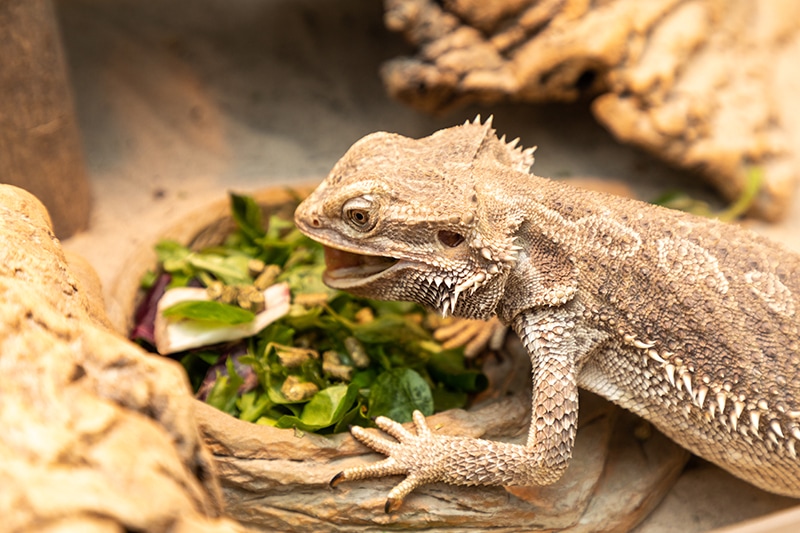
The Bearded Dragon Diet
Understanding your bearded dragon’s nutritional requirements, eating habits, and overall diet is essential for providing them with optimal care. These reptiles are omnivorous and require a balanced mix of animal protein, vegetables, and fruits.
Animal protein is a very important part of their diet. Bearded dragons are primarily insectivorous when they are young, so their diet should consist of appropriately sized insects such as crickets, mealworms, and dubia roaches. As they grow older, their protein intake can be supplemented with pinky mice or commercial reptile food.
In addition to protein, leafy greens should also be a staple in their diet. These provide essential vitamins and minerals, similar to the benefits of broccoli that were previously discussed. To provide variety, other vegetables can be offered as a supplement and incorporated into their diet.
Final Thoughts
Bearded dragons can absolutely eat broccoli, serving as a nutritious addition to their diet. Packed with essential vitamins, minerals, and fiber, broccoli offers numerous health benefits provided that it is presented in moderate amounts.
Remember to provide a varied diet that includes a mix of vegetables, animal protein, and the necessary supplements to meet their specific nutritional needs. By offering a balanced diet and paying attention to your dragon’s preferences, you can ensure they thrive and lead a happy, healthy life!
See Also:
- Can Bearded Dragons Eat Arugula? Vet-Reviewed Nutrition Facts & FAQ
- Can Bearded Dragons Eat Radicchio? Vet Approved Nutrition Facts & FAQ
Featured Image Credit: Tyrrell Fitness And Nutrition, Unsplash


